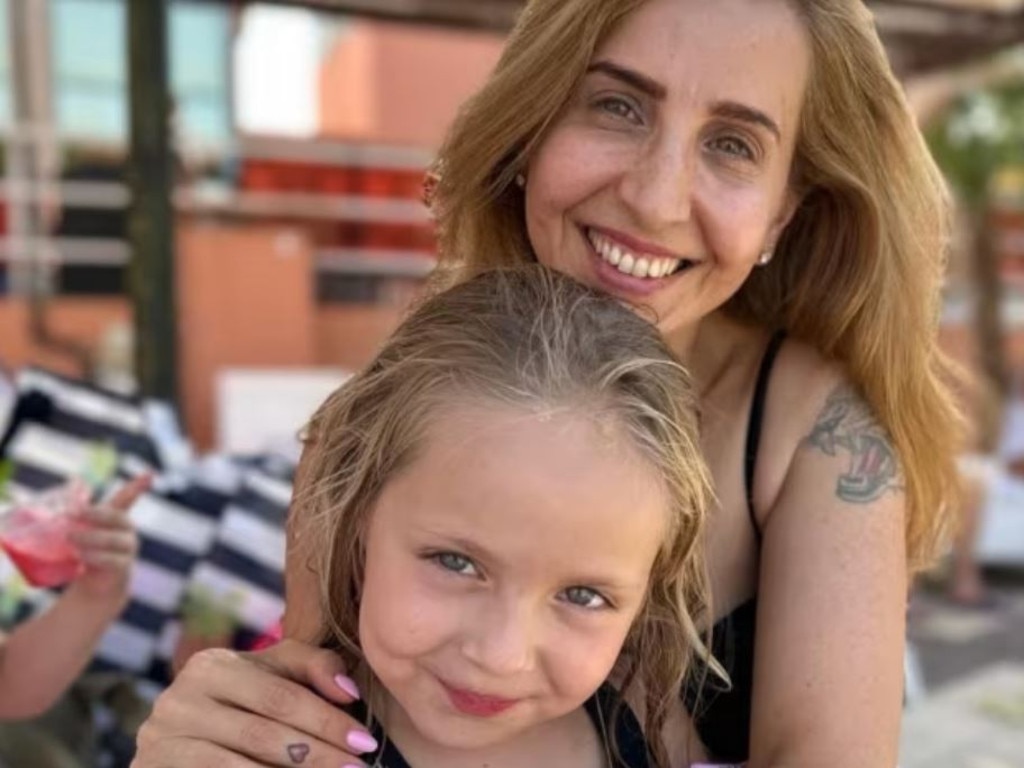Inside Israel’s daring hostage rescue in Gaza
An elite team stormed into the second floor of a building as airstrikes rained down on the border city of Rafah.
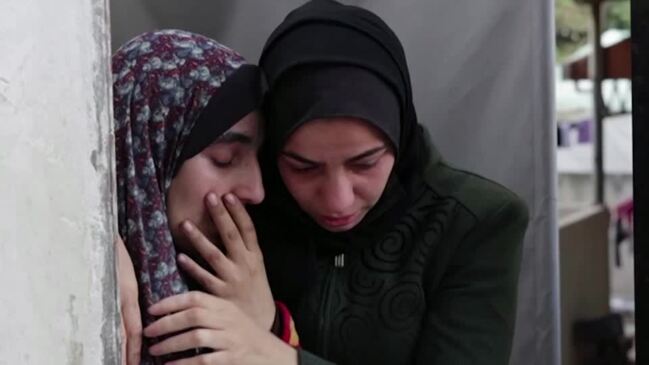
Palestinians in the city of Rafah, on the Gaza Strip’s border with Egypt, awoke Monday to the sound of explosions. It was 1:50 a.m., but it looked like daytime outside.
“I never witnessed such a violent night since the war began,” said Hanan Abdulkarim, who said her window was flashing white when she and her 6-year-old son woke up. “I was 100% sure we were going to die at that moment.”
Minutes earlier, an elite Israeli team of counterterrorism police and intelligence agents had used explosives to break through a blast door and rush into the second floor of a residential building in the city. They exchanged fire with militants, killing at least three of them.
They quickly surrounded two men—70-year-old Luis Har and 61-year-old Fernando Simon Marman—and attempted to shield them with their bodies. Both men were dual Israeli-Argentinian citizens and had been taken from Kibbutz Nir Yitzhak on Oct. 7. They were thin and weak after 129 days in captivity.
As the rescue at the residential building unfolded, airstrikes rained down on operation centers of Hamas, to prevent the group from having a real-time picture of the raid, according to Israeli military spokesman Daniel Hagari.
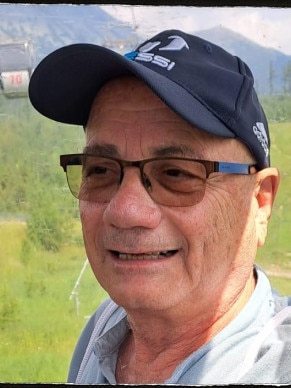
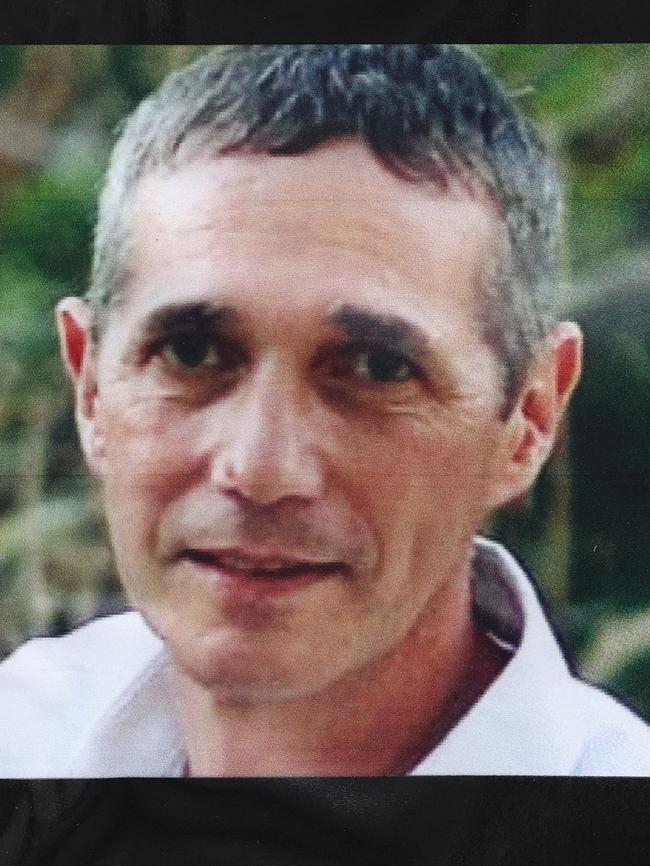
More than a million Palestinians have crowded into the city of Rafah, seeking refuge from Israel’s offensive against Hamas to the north. But the war has been closing in on them. On Sunday, Prime Minister Benjamin Netanyahu vowed on American television that the Israeli military would enter Rafah, which he called the last bastion of Hamas. Israel is proposing setting up sprawling tent-cities as part of an evacuation plan for those sheltering in the city.
The rescue of two hostages brought a glimmer of hope for Israeli families with loved ones still held captive in Gaza and offered a moment of optimism for the nation. For Palestinians in Gaza, however, the operation was another reminder of how exposed they are to Israeli military operations.
“I truly believed it was our end,” said Hanan Harbi, a doctor’s secretary who had sought refuge in Rafah with her five children.
Nearly 70 Palestinians were killed in the operation, mostly in airstrikes, according to health authorities in Gaza. The figures don’t distinguish between militants and civilians.
As the rescue operation unfolded, many Palestinians in the city said they thought the invasion had begun. They weren’t the only ones.
Around 2 a.m., phone alerts went off at the military headquarters in Cairo, Egyptian officials said. Panic ensued among defense officials. They thought Israel had started the offensive, which risked pushing a wave of Palestinians into Egypt, without telling them.
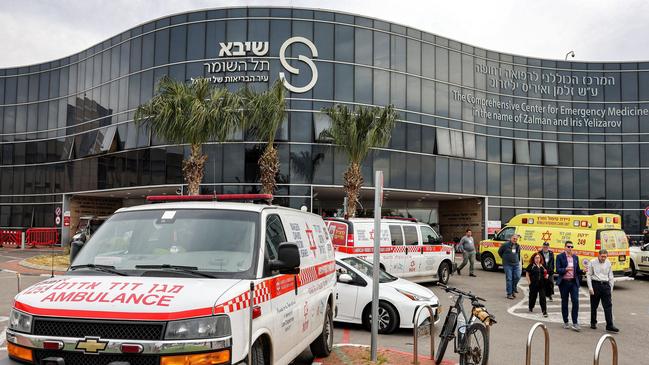
In Israel, Netanyahu had gathered with top officials—including Defense Minister Yoav Gallant and Ronen Bar, the director of the country’s security agency Shin Bet. They watched live footage of the rescue from a Shin Bet special operations room in an undisclosed location.
Netanyahu later said he had watched the SWAT team place the explosive charge. Seconds later, he said the team reached their target. A voice could be heard over the radio: “The diamonds are in our hands.”
It was code for the two men.
Time in Captivity
The two men—Fernando and Luis—had been taken on Oct. 7, along with Fernando’s sisters Clara Marman and Gabriela Leimberg, as well as Gabriela’s 17-year-old daughter, Mia. Luis is Clara’s partner.
Clara, Gabriela and Mia were released in late November as part of a one-week cease-fire deal between Hamas and Israel.
All five of them were kept in one residential house, Clara told The Wall Street Journal in an interview last month. Luis, who has four children and 10 grandchildren, didn’t have his hearing aid or the medication he needed for high blood pressure and diabetes.
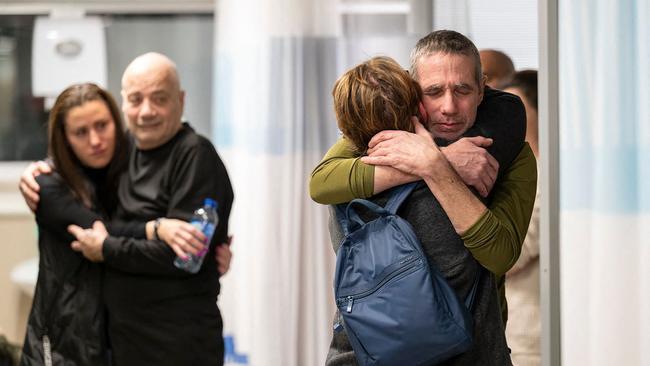
They kept track of time by listening to the Muslim call to prayer five times a day. Each prayer had a different tune. Mia and Clara would count the days.
To pass time, the adults in the family told Mia stories about their life on the kibbutz, including how Clara and Luis met when he was working at the kibbutz factory. Sometimes they heard buzzing outside from what they thought were Israeli drones trying to collect intelligence. When it was possible, they would try to speak louder, in the hope their voices would be detected by the drones.
When the family had to split up as the three women were released in November, their captors gave them only a bit of time to say goodbye. Clara’s eyes welled up in tears as she recalled her separation from Fernando and Luis. “They tried to play it cool but I could tell they were devastated,” she said.
A Daring Rescue
Before rescuing Fernando and Luis, Israeli forces prepared for a month, the head of the police SWAT team said. The operation was a collaboration between various Israeli forces, including an elite group of police officers, Shin Bet and the Shayetet 13—Israel’s equivalent of U.S. Navy SEALs.
“We waited for the right timing and intelligence to move in,” Israeli military spokesperson Lt. Col. Richard Hecht said on Monday.
The decision to go ahead was made as negotiations to release hostages stalled, said David Tsur, a former commander of the police SWAT unit. “If the deal had progressed, I think they would have canceled the operation,” said Tsur.
The SWAT team likely spent weeks practicing how they would enter the home and deal with potential complications posed by being in a dense neighborhood, said Tsur. They would have planned the precise timing of each movement and task, he said.
“From the moment you explode the door, you’re already exposed,” said Tsur. “You have a few seconds to get to the terrorists and eliminate them. Then begins the evacuation operation.”
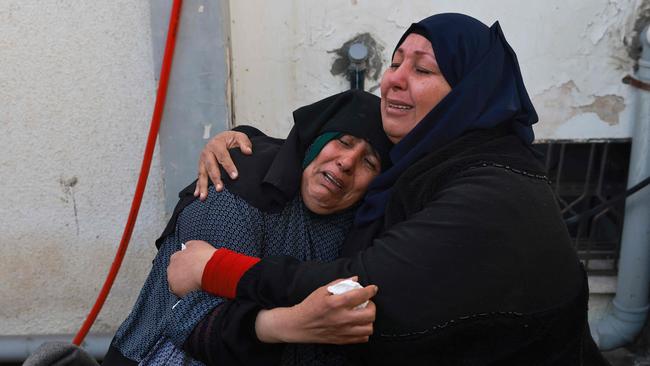
As they were evacuated from the building early Monday, the two men and their rescuers came under fire as they walked down a narrow road in Rafah, according to aerial video footage released by the Israeli military. “The forces have started to move along the route,” an Israeli officer can be heard saying to his colleague. A tank convoy can be seen moving along the road.
The Israeli military said that it carried out strikes for roughly one hour as the men were whisked out of Gaza. At nearby Kuwaiti Hospital, the wounded began flowing in.
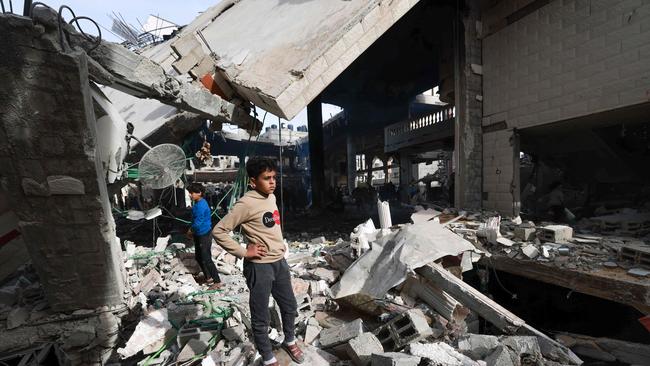
Musa Masaad, a 21-year-old Palestinian who was staying with relatives in the neighborhood where the raid took place, started checking on his family members after being awakened by deafening blasts. He said he could see bodies outside on the ground.
A bit further away, Ameen Abu Taha, 34, was sleeping in a tent in a neighborhood of Rafah that the Israeli military had designated a safe zone. He held on to his daughter and brother’s four children, and urged them to go back to sleep. “I honestly thought we were going to die,” said Abu Taha.
‘We Love You!’
As the city of Rafah reeled from the strikes, Fernando and Luis were almost out of harm’s way. As they were being taken in a vehicle to a helicopter, they were greeted by members of the Shayetet. “Welcome back. How are you guys? How are you feeling?” they asked the men.
“Shocked, shocked, all right,” said one of the men, according to a video released by the Israeli military. They were buckled in and asked whether they wanted a blanket and water. One of the officers offered the men shoes since they were still barefoot.
“We love you!” said someone in the crew.
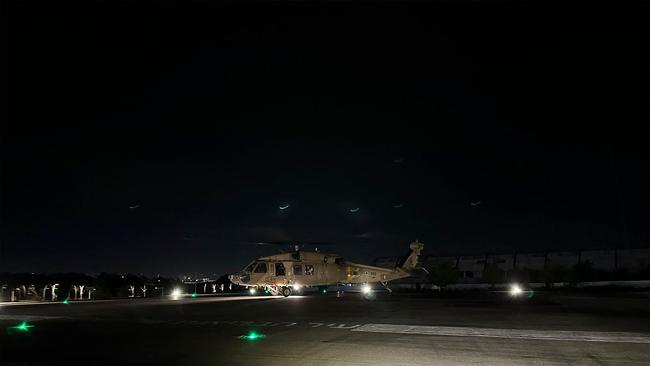
Just after 3 a.m., Fernando and Luis landed at Sheba Medical Center, where they were greeted by family. There were long hugs and tears. Fernando held Gabriela tightly, while Luis embraced his daughter Natali Afgan. A medical staff member in green scrubs smiled on the side.
“I’m still speechless really,” said Maayan Sigal-Koren, Fernando’s niece. “We’re all still shocked here.”
“We waited for this. We dreamed about this for a very long time,” Gefen Sigal Ilan, Fernando’s niece, told Israeli radio on Monday.




